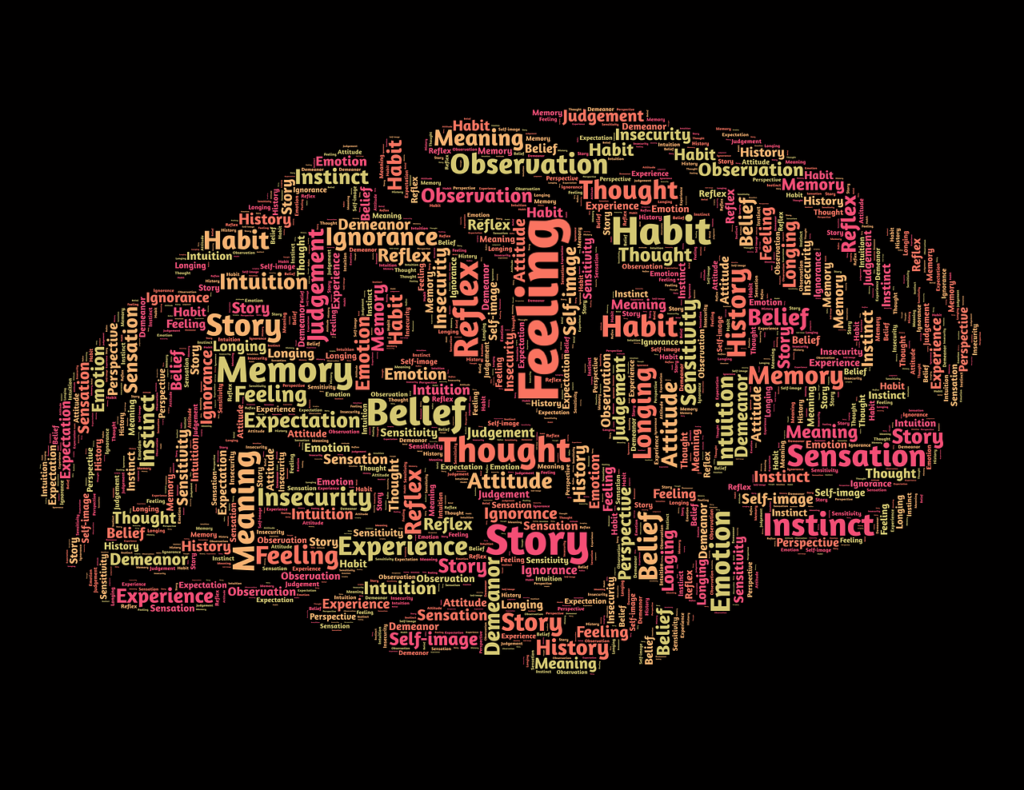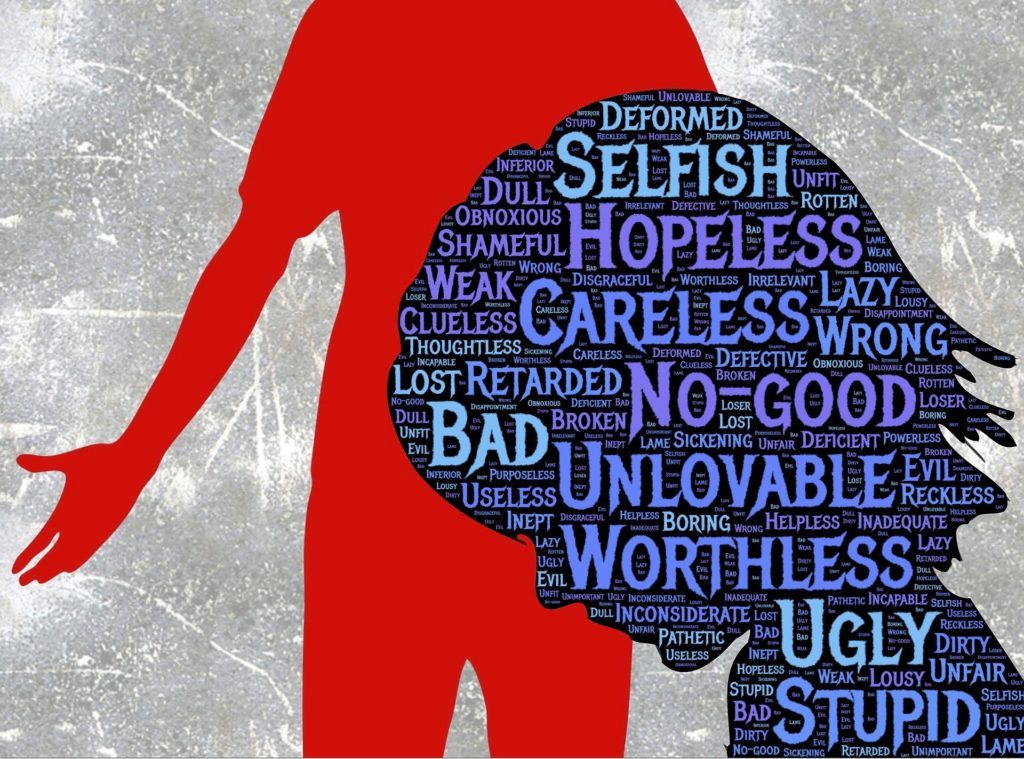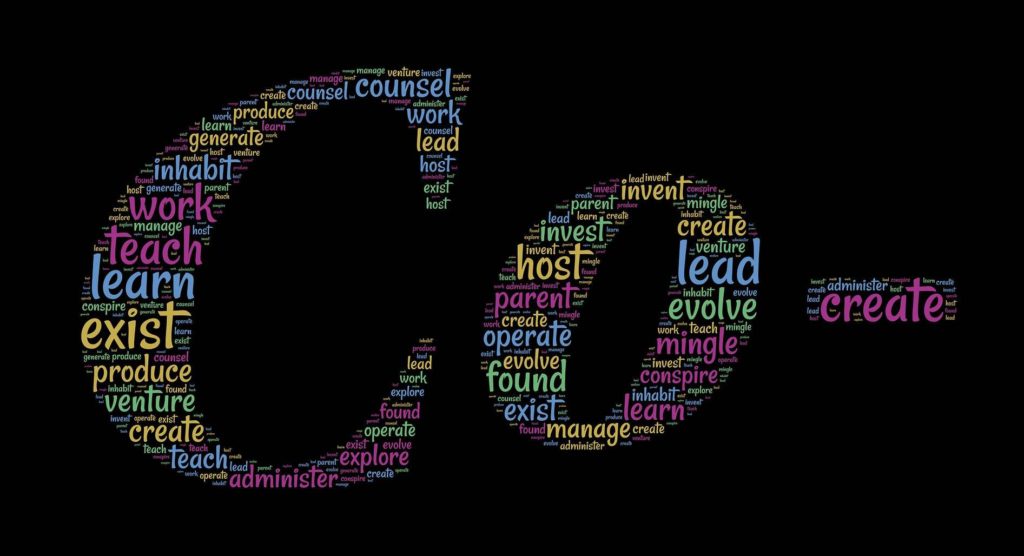The AutoSuggestion Technique
The AutoSuggestion Sound Method is a new technique that builds and improves upon the work of French psychologist and pharmacist Emile Coue. During the early 1900s, Coue proved that optimistic Autosuggestion could be used to reset our brains to achieve maximum well-being, health, and prosperity. However, the idea that we can transform our lives by repeating positive thoughts or affirmations did not start with Cooe, but is a practice that stretches back to the ancient world.
One early advocate was the great Roman Emperor Marcus Aurelius who stressed the importance of repeating positive, life-affirming, thoughts. Aurelius writes, “Your mind will be like its habitual thoughts; for the soul becomes dyed with the color of its thoughts. Soak it then in such trains of thought as, for example: “Where life is possible at all, a right life is possible.” We can also find support for the autosuggestion technique in the words of the Buddha, who wrote: “We are what we think. All that we are arises with our thoughts. With our thoughts, we make the world.”
The Unconscious & Conscious Mind
 Autosuggestion (also known as self-suggestion) is the process of changing our beliefs, altering mental associations, and providing instructions for our mind to follow by retraining the subconscious mind with repetitive new thoughts. It is somewhat similar to hypnotism, but unlike hypnotism where the suggestions are coming from another person, this time the suggestions are provided by you rather than the hypnotist.
Autosuggestion (also known as self-suggestion) is the process of changing our beliefs, altering mental associations, and providing instructions for our mind to follow by retraining the subconscious mind with repetitive new thoughts. It is somewhat similar to hypnotism, but unlike hypnotism where the suggestions are coming from another person, this time the suggestions are provided by you rather than the hypnotist.
The phenomena of Autosuggestion is thus based on the fact that two distinct selves exist within us. Both are intelligent, but while one is conscious the other is Unconscious. The conscious self often possesses a very unreliable memory. However, the Unconscious self has an impeccable memory which registers without our knowledge the smallest events, the least important acts of our existence.
The Unconscious is responsible for the functioning of all our organs, and it acts as the intermediary of the brain. Therefore, if the Unconscious believes that a certain organ functions well or ill or that we feel a particular way, the organ in question does indeed function well or ill, or we do feel that way (this is why placebos can have such a strong effect).
The Unconscious-self presides over not only the functions of our organism, but also all of our actions, whatever they are. It is this that we call our imagination, and it is this which (contrary to accepted opinion) makes us act even against our will and best interests. By using the technique of Autosuggestion, we can relieve ourselves of these Unconscious thoughts, programs, and habits to achieve greater health and abundance (both spiritually and materially).
Autosuggestion & Negative Thoughts
 By using curative Autosuggestions, we can reduce the power that negative thoughts have over our bodies, lives, and relationships, eventually overcoming them entirely. Of all the destructive thoughts & Unconscious suggestions that we must learn to set aside, fear is the most dangerous.
By using curative Autosuggestions, we can reduce the power that negative thoughts have over our bodies, lives, and relationships, eventually overcoming them entirely. Of all the destructive thoughts & Unconscious suggestions that we must learn to set aside, fear is the most dangerous.
In fearing something the mind is not only dwelling on a negative idea, but it is establishing the closest personal connection between the idea and ourselves. Moreover, the idea is surrounded by an aura of emotion, which considerably intensifies its effect. Fortunately, fear can easily be overcome through the power of induced Autosuggestion.
It is also very important that we avoid dwelling on the faults and frailties of other people. If ideas of selfishness, greed, vanity, are continually before our minds there is great danger that we shall subconsciously accept them, and so realize them in our own character. The petty gossip and backbiting, so common in today’s world, produce the very faults they seem to condemn. But by allowing our minds to rest upon the virtues of our neighbors and co-workers, we reproduce the same virtues in ourselves.
Just as we should avoid negative ideas for our own sakes, so much more should we do so for the sake of other people. Cynical men and women are centers of mental contagion, damaging all with whom they come in contact. Sometimes such people seem to involuntarily crush the cheerfulness of brighter natures, as if their Unconscious strives to reduce all others to its own low level.
Even positive, well-intentioned people can make destructive suggestions, without the least suspicion of the harm they do. For example, every time we commiserate with a friend or co-worker on the difficulty of their daily work, or describe it as irksome and tedious, we make it a little harder for them to accomplish, and thereby slightly diminish their chances of success.
AutoSuggestion & Children
 If we must supervise our speech in contact with adults, with children we should exercise still greater foresight. The child’s Unconscious is far more accessible than that of the adult; the selective power exercised by the conscious mind is much weaker, and consequently the impressions received are more powerful. These impressions are the material from which the child’s growing life is constructed, and if we supply faulty material the resultant structure will be unstable.
If we must supervise our speech in contact with adults, with children we should exercise still greater foresight. The child’s Unconscious is far more accessible than that of the adult; the selective power exercised by the conscious mind is much weaker, and consequently the impressions received are more powerful. These impressions are the material from which the child’s growing life is constructed, and if we supply faulty material the resultant structure will be unstable.
It is not uncommon to find attentive and well-meaning parents daily sowing the seeds of weakness in their children’s minds. The little ones are constantly told they will take cold, will be sick, will fall down, or will suffer some other misfortune. The more delicate the child’s health, the more likely they are to be subjected to adverse suggestions. Children are all too often saturated with the idea of bad health, and thus come to look on disease as the normal state of existence and health as exceptional.
The same is equally true of the child’s mental and moral upbringing. How often do foolish or angry parents tell their kids that they are naughty, disobedient, stupid, or lazy? If these suggestions were accepted, which, thank Heaven, is not always the case, the children would in very fact develop just these qualities. But even when no word is spoken, a look or a gesture can initiate an undesirable autosuggestion. The same child, visited by two strangers, will immediately make friends with the one and avoid the other. Why is this? Because the one carries with him a healthful atmosphere, while the other sends out waves of irritability or gloom.
“Men imagine,” says Emerson, “that they communicate their virtue or vice only by overt actions, and do not see that virtue and vice emit a breath every moment.”
With children, above all, it is not sufficient to refrain from the expression of negative ideas; we must avoid harboring them altogether. Unless we possess a bright positive mind the suggestions derived from us will be of little value.
AutoSuggestion, Health & Disease
 One idea that is gaining ground is that a great deal of what is called hereditary disease is transmitted from parent to child, not physically but mentally that is to say, by means of adverse suggestions continually renewed in the child’s mind. But all this is no more than crystallized common-sense. Everyone knows that a cheerful mind suffuses health, while a gloomy one produces conditions favorable to disease. “A merry heart doeth good like a medicine,” says the writer of the Book of Proverbs, “but a broken spirit drieth the bones.”
One idea that is gaining ground is that a great deal of what is called hereditary disease is transmitted from parent to child, not physically but mentally that is to say, by means of adverse suggestions continually renewed in the child’s mind. But all this is no more than crystallized common-sense. Everyone knows that a cheerful mind suffuses health, while a gloomy one produces conditions favorable to disease. “A merry heart doeth good like a medicine,” says the writer of the Book of Proverbs, “but a broken spirit drieth the bones.”
However, since this knowledge previously lacked a scientific basis, it has never been systematically applied. We have regarded our feelings far too much as effects and not sufficiently as causes. We are happy because we are well; we do not recognize that the process will work equally well in the reverse direction—that we shall be well because we are happy. Happiness is not only the result of our conditions of life; it is also the creator of those conditions.
Autosuggestion lays weight upon this latter view. Happiness must come first. It is only when the mind is ordered, balanced, filled with the light of joyous thought, that it can work with its maximum efficiency. When we are habitually happy our powers and capabilities come to their full blossom, and we are able to work with the utmost effect on the shaping of what lies ahead.
Happiness, you might say, cannot be ordered like a steak in a restaurant. Like love, its very essence is freedom. This is true; but like love, it can be wooed and won. It is a condition which everyone experiences at some time in life. It is native to the mind. By the systematic practice of positive Autosuggestion we can make it, not a fleeting visitor, but a regular tenant of the mind, which storms and stresses from without cannot dislodge. This idea of an indwelling happiness, inwardly conditioned, is as ancient as thought. By Autosuggestion we can realize it in our own lives.
Traditionally we rely too much on the conscious mind. If a person suffers from recurring headaches they search out, with the help of their physician, the cause and then purchase the drugs best suited to repair the fault. If someone wishes to improve a poor memory they practice one of the various methods of memory-training. If the person is the victim of a pernicious bad habit, they are left to counter it by efforts of the will, which too often exhaust the individual’s strength, undermine their self-respect, and does nothing to rid the habit.
AutoSuggestion is Simple & Easy
 How simple in comparison is the method of positive Autosuggestion. One needs merely think of the desired outcome a head free from pain, a good memory, a new job, a mode of life in which a bad habit has no part, and these states are gradually evolved without the person being aware of the operation performed by the Unconscious.
How simple in comparison is the method of positive Autosuggestion. One needs merely think of the desired outcome a head free from pain, a good memory, a new job, a mode of life in which a bad habit has no part, and these states are gradually evolved without the person being aware of the operation performed by the Unconscious.
But even so, if each individual difficulty required a fresh treatment one for the headache, one for the memory, one for the bad habit, and so on; then the time needful to practice autosuggestion would form a considerable part of our waking life. Fortunately, there is a general formula which sets before the mind the idea of a daily improvement in every respect, mental, physical and moral. It goes like this: “Day by day, in every way, I’m getting better and better.” This is very easy to say, the youngest child can understand it, and it possesses a rudimentary rhythm, which exerts a lulling effect on the mind and so aids in calling up the Unconscious.
Christians and those of other religions who wish to associate the formula with God’s care and protection might do so after this fashion: “Day by day, in every way, by the help of God, I’m getting better and better.” It is possible that the attention of the Unconscious will thus be turned to moral and spiritual improvements to a greater extent than by the ordinary formula.
But this general formula possesses definite advantages other than mere terseness and convenience. The Unconscious, in its character of surveyor over our mental and physical functions, knows far better than the conscious the precise failings and weaknesses which have the greatest need of attention. The general formula supplies it with a fund of healing, strengthening power, and leaves it to apply this at the points where the need is most urgent.
It is a matter of common experience that people’s ideals vary considerably, and sometimes they are quite lopsided and not conducive to complete well-being. For example, the hardened materialist might picture perfection solely in terms of wealth and acquisitions. It is therefore quite conceivable that a person left free to determine the nature of their Autosuggestions by the light of their conscious desires might use this power to manifest a quality not in itself admirable, or even one which, judged by higher standards, appeared pernicious.
Even supposing that the person’s choice was good, they could be in danger of over-developing a few characteristics to the detriment of others and so destroying the balance of their personality. The use of the general formula guards against this. It saves the person in spite of themselves. It avoids the pitfalls into which the conscious mind may lead us by appealing to a more competent authority. Just as we leave the bodily distribution of food nutrients to the Unconscious mind, so we may safely leave that of our mental food (our positive Autosuggestions) to that of the Unconscious.
The Limits of Positive AutoSuggestion
 Lastly, it is important to remember that positive Autosuggestion is not a substitute for medical practice. It will not make us live forever, neither will it free us completely from the common ills of life. The adult of today carries in their Unconscious a memory clogged with a mass of adverse suggestions which have been accumulating since childhood. The first task of Induced Autosuggestion will be to clear away this mass of mental lumber. Not until this has been accomplished can the real person appear and the creative powers of Autosuggestion begin to manifest themselves.
Lastly, it is important to remember that positive Autosuggestion is not a substitute for medical practice. It will not make us live forever, neither will it free us completely from the common ills of life. The adult of today carries in their Unconscious a memory clogged with a mass of adverse suggestions which have been accumulating since childhood. The first task of Induced Autosuggestion will be to clear away this mass of mental lumber. Not until this has been accomplished can the real person appear and the creative powers of Autosuggestion begin to manifest themselves.
By the use of this method each one of us should be able to look forward to a more fully enriched life, one in which physical and mental illness is a diminishing factor. But how great a part it will play depends upon the conditions we start from and the regularity and correctness of our practice. Should an illness befall us, we possess within a potent means of expelling it, but this does not invalidate the complementary method of destroying it from without. Autosuggestion and the usual medical practice should go hand in hand, each supplementing the other. If you are ill, call your doctor as before, but enlist the resources of positive Autosuggestion to reinforce and extend traditional treatments.
For example, a broken bone cannot of course be treated by Autosuggestion alone. A surgeon must be called in to mend it. But when the limb has been rightly set and the necessary mechanical precautions have been taken, autosuggestion will provide the best possible conditions for a speedy recovery. It can prevent lameness, stiffness, deformity and the other problems which can accompany the repair of a broken limb, and it will shorten considerably the normal period of convalescence.
Also remember that there is no point in repeating affirmations that are completely unrealistic or untrue. It is important that we set goals for ourselves that are attainable, while understanding that we don’t have full control over everything that happens to us. Karma is a powerful force and unfortunate things can happen to anyone. However, we do have full control over our own thoughts and how we interpret the outside world. And by the practicing AutoSuggestion, we have a better chance at achieving our desires than we might previously have had, simply because we are no longer sabotaging ourselves with our own beliefs.
In other words, you will not suddenly and magically become rich and famous by using autosuggestions. However, your chances of becoming rich, happy, and successful (or anything else you desire) is enhanced greatly if you combine hard work, persistence, and imagination with the AutoSuggestion Sound Method.
Buy The Majesty Program for $11.99 – Listen to Our Podcast for a 30% off Coupon Code to Use at Checkout
Secure Checkout with Paypal or Credit Card Provided by E-Junkie.com
If you do not receive an email with your download link, please check your SPAM folder to be sure that our e-mail was not accidentally labelled as SPAM. Have a question? Please click to read our: FAQs.
Please note that you cannot download the meditation directly to an iPhone by purchasing the meditation above. If you are not tech savvy and believe you’ll have trouble syncing the file to your iPhone, you can now download the meditation directly from the iTunes store for $11.99—however, the coupon code cannot be used.
Prepare you conscious mind to begin the AutoSuggestion Sound Method at: AutoSuggestion Preparation.



